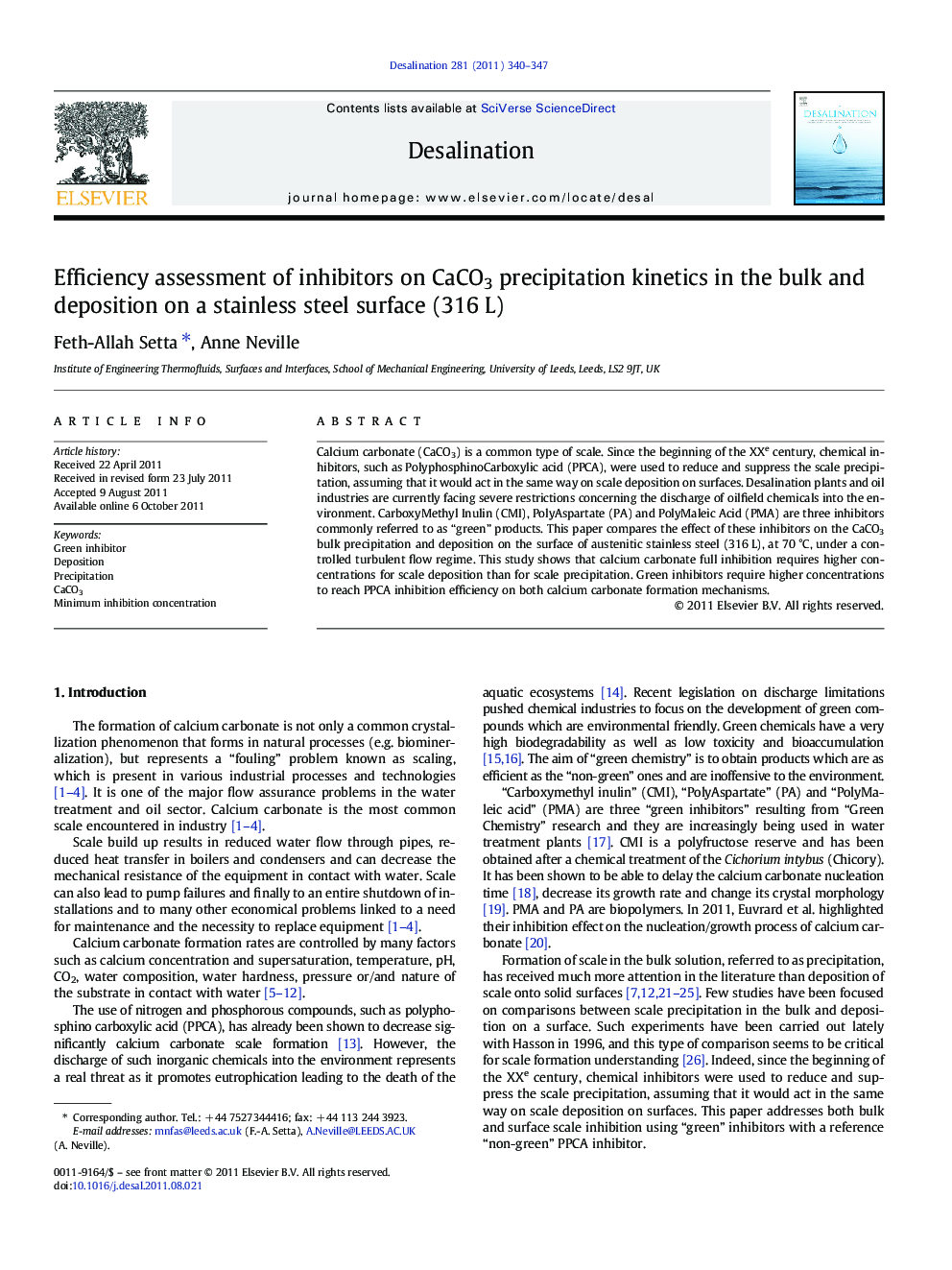| Article ID | Journal | Published Year | Pages | File Type |
|---|---|---|---|---|
| 624802 | Desalination | 2011 | 8 Pages |
Calcium carbonate (CaCO3) is a common type of scale. Since the beginning of the XXe century, chemical inhibitors, such as PolyphosphinoCarboxylic acid (PPCA), were used to reduce and suppress the scale precipitation, assuming that it would act in the same way on scale deposition on surfaces. Desalination plants and oil industries are currently facing severe restrictions concerning the discharge of oilfield chemicals into the environment. CarboxyMethyl Inulin (CMI), PolyAspartate (PA) and PolyMaleic Acid (PMA) are three inhibitors commonly referred to as “green” products. This paper compares the effect of these inhibitors on the CaCO3 bulk precipitation and deposition on the surface of austenitic stainless steel (316 L), at 70 °C, under a controlled turbulent flow regime. This study shows that calcium carbonate full inhibition requires higher concentrations for scale deposition than for scale precipitation. Green inhibitors require higher concentrations to reach PPCA inhibition efficiency on both calcium carbonate formation mechanisms.
► The MICsurface for PPCA, PA, PMA and CMI were found to be higher than their MICbulk. ► Calcium carbonate full inhibition requires higher concentrations for scale deposition than for scale precipitation. ► Green inhibitors require higher concentrations to reach PPCA inhibition efficiency on both calcium carbonate formation mechanisms.
